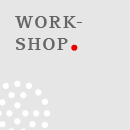Interdisciplinary Workshop on Theories and Methods II: Objectivity
organized by Astrid Séville (Munich) and Benedikt Sepp (Munich)
28.06.2023 17:15 – 18:45
Historicum Room K226, Schellingstr. 12, Munich
Colloquium "Europe's History of the Present: Universalism and Particularism"
The KFG colloquium continues on Wednesday, June 28th with an interdisciplinary workshop on theories and methods on "Objectivity", organized by Astrid Séville and Benedikt Sepp.
Astrid Séville studied Political Science, Romance Studies and Historical Anthropology at the Albert-Ludwigs-University Freiburg and at the Université Denis Diderot Paris. Together with Dr. Julian Müller and Dr. Christian Kirchmeier she is currently leading the research project "Re/Presentation. New Forms of Political Address and Advocacy in the Coming Society," which is funded by the Gerda Henkel Foundation. She is currently a substitute professor of political theory and philosophy at the School of Politics at the Technical University of Munich. In the summer semester of 2022, she held the Sir Peter Ustinov Visiting Professorship at the University of Vienna. She is also a temporary academic councilor at the Chair of Political Theory of the Geschwister-Scholl-Institute for Political Science at LMU. Her research focuses on political theory, populism and democratic opposition, political communication, social transformation and inclusion processes, institutions and governance architectures, and technocracy discourses.
Benedikt Sepp has been a research assistant at the Chair of Contemporary History since April 2021. He graduated as a “Magister“ in Modern and Contemporary History, Medieval History and Economics at the Ludwig-Maximilians-University in Munich and the NTNU in Trondheim, Norway. He received his PhD from the University of Konstanz in 2021. His dissertation, supervised by Sven Reichardt and Philipp Felsch examined the role of the knowledge form "theory" in the antiauthoritarian movement of West Berlin from a praxeological perspective. His research focuses on Political extremism in the Federal Republic in the 1960s and 1970s; History of fascism, theories of fascism; Practical theoretical approaches and methods in historiography.
Participation is possible in person or via zoom after registration under the following link.
If you want to receive regularly information on the colloquium and other KFG events, please register for the newsletter by writing to kfg20@lrz.uni-muenchen.de.


